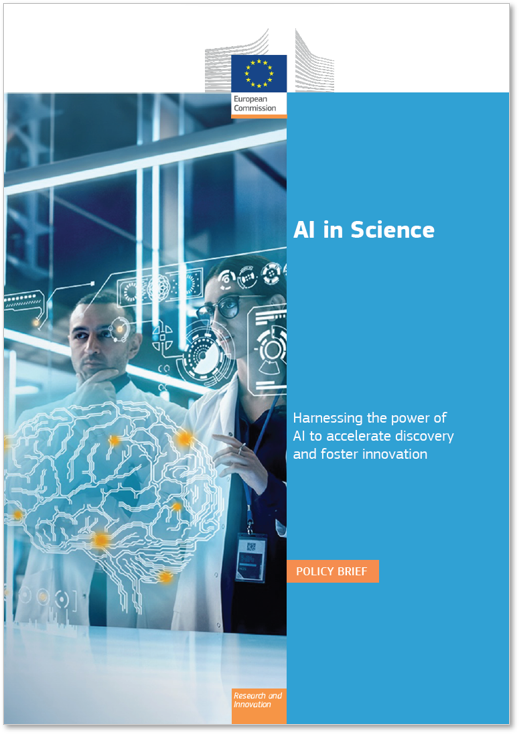The upcoming AI Act positions the EU as a leader in creating a framework for trustworthy AI. This act is crucial for leveraging AI in science, ensuring global competitiveness and technological advancements. Integrating AI into scientific discovery is key for the EU’s competitive edge and leadership in innovation, pivotal for socio-economic prosperity and strategic autonomy.
AI is revolutionizing research by aiding scientists, processing data, automating tasks, and boosting productivity. It’s instrumental in addressing global issues like climate change and antimicrobial resistance. In medicine, AI advancements are seen in diagnostics, drug discovery, and brain research. Potential developments in advanced materials, digital twins, brain-like AI, and sustainable energy technologies highlight AI’s transformative potential.
However, AI in science brings unique challenges, including maintaining scientific integrity, enhancing public trust, attracting and retaining talent, harnessing data power, ensuring diversity, and reducing disparities. AI is expected to augment, not replace, researchers, potentially becoming a significant force in scientific discovery.
The policy aims to harness AI as a positive force by setting the right conditions for its integration in science. Key action areas include:
- Vision and Governance: A vision enabling European scientists to utilize AI for breakthroughs, maintaining the EU’s leadership in science. This requires an ecosystem approach in governance, coordinating with digital, AI, education, and cohesion policies.
- Talent: Addressing challenges like brain drain and academic career barriers, the EU must attract and retain talent, training researchers for AI-driven science and understanding AI’s impact on their work.
- Data, Compute, AI Assets Ecosystem: Completing data spaces, including the European Open Science Cloud (EOSC), is vital. Upgrading EU initiatives to facilitate AI-driven research automation, access to quality datasets, and high-performance computing is essential.
- Funding and R&I System: A portfolio of strategic R&I investments is needed for utilizing AI in scientific challenges and boosting productivity. Emphasizing interdisciplinarity and knowledge sharing is crucial.
- Enabling Framework: Addressing ethical challenges like reproducibility and diversity in AI outcomes is vital for maintaining trust in science. Vigilance against technology misuse and agile mechanisms for risk management are necessary.
These challenges underscore the need for EU-level initiatives to create an AI-friendly ecosystem in science. The policy will focus on accelerating AI adoption by scientists, enhancing the data and computing ecosystem, identifying strategic R&I investments, and developing policy enablers. Monitoring AI’s impact on scientific processes and addressing ethical issues are also critical for maintaining public trust in AI-driven science.
Future policy measures will be shaped by stakeholder consultations, ensuring a comprehensive and effective approach to integrating AI in science.

